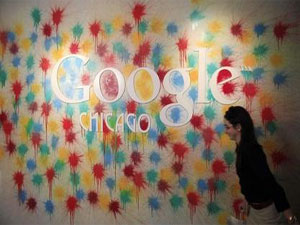



Date:04/03/13
 German lawmakers approved a bill on Friday that aims to protect publishers' copyright on the Internet but critics branded it too weak for failing to make search engines such as Google pay for displaying news snippets, the Reuters reported.
German lawmakers approved a bill on Friday that aims to protect publishers' copyright on the Internet but critics branded it too weak for failing to make search engines such as Google pay for displaying news snippets, the Reuters reported.
The bill, which follows years of debate, comes as the newspaper industry in Germany, as elsewhere, struggles to find new sources of revenue as readers and advertisers move online in droves.
Chancellor Angela Merkel's center-right coalition, which faces an election in September, watered down its original plans amid pressure from Internet lobbyists, lawyers and others who argued that it undermined freedom of information.
Google launched an ad campaign in German newspapers and set up a web information site called "Defend your web" to lobby against the proposals, saying they would mean less information for consumers and higher costs for companies.
The "ancillary copyright" bill now makes clear that search engines can publish "individual words or small snippets of text such as headlines" without incurring any costs.
They will have to pay for use of longer pieces of content, though opposition parties said the wording of the bill was vague and could lead to courts having to rule on individual cases.
The opposition parties could still block the bill in the Bundesrat, the upper house of parliament, where the government has no majority. "It is not at all clear who is now meant to be protected from whom and why there is this law," said the opposition Greens on their website on Friday, saying the bill served neither cash-strapped publishers nor the free flow of information.
Google echoed such criticism.
"The law is neither necessary nor sensible. It hampers innovation and hurts the economy and Internet users in Germany," said Kay Oberbeck, communications director at Google.
But the association of German newspaper publishers welcomed the bill as "an important element in the creation of a fair legal space in the digital world". They have argued that search engines raise the vast majority of their revenues from online advertising and that a substantial part of these come directly or indirectly from the free access to professional news or entertainment content produced by media. The German draft bill states explicitly that it is not intended to protect newspapers from the effects of ongoing structural changes in the market.
German lawmakers back Internet copyright, Google critical
 German lawmakers approved a bill on Friday that aims to protect publishers' copyright on the Internet but critics branded it too weak for failing to make search engines such as Google pay for displaying news snippets, the Reuters reported.
German lawmakers approved a bill on Friday that aims to protect publishers' copyright on the Internet but critics branded it too weak for failing to make search engines such as Google pay for displaying news snippets, the Reuters reported.The bill, which follows years of debate, comes as the newspaper industry in Germany, as elsewhere, struggles to find new sources of revenue as readers and advertisers move online in droves.
Chancellor Angela Merkel's center-right coalition, which faces an election in September, watered down its original plans amid pressure from Internet lobbyists, lawyers and others who argued that it undermined freedom of information.
Google launched an ad campaign in German newspapers and set up a web information site called "Defend your web" to lobby against the proposals, saying they would mean less information for consumers and higher costs for companies.
The "ancillary copyright" bill now makes clear that search engines can publish "individual words or small snippets of text such as headlines" without incurring any costs.
They will have to pay for use of longer pieces of content, though opposition parties said the wording of the bill was vague and could lead to courts having to rule on individual cases.
The opposition parties could still block the bill in the Bundesrat, the upper house of parliament, where the government has no majority. "It is not at all clear who is now meant to be protected from whom and why there is this law," said the opposition Greens on their website on Friday, saying the bill served neither cash-strapped publishers nor the free flow of information.
Google echoed such criticism.
"The law is neither necessary nor sensible. It hampers innovation and hurts the economy and Internet users in Germany," said Kay Oberbeck, communications director at Google.
But the association of German newspaper publishers welcomed the bill as "an important element in the creation of a fair legal space in the digital world". They have argued that search engines raise the vast majority of their revenues from online advertising and that a substantial part of these come directly or indirectly from the free access to professional news or entertainment content produced by media. The German draft bill states explicitly that it is not intended to protect newspapers from the effects of ongoing structural changes in the market.
Views: 961
©ictnews.az. All rights reserved.Similar news
- 24% of U.S. Adults have made phone calls on the Internet
- UNESCO puts sustainable learning online
- Australia gives incentives for the use of telehealth
- US launches computer programme for poor kids
- UN declares web access as human right
- Facebook growth slows in stalkerbase heartlands
- One Third of Millionaires Use Social Media
- Facebook Seeks Bigger Role in Software for Mobile Apps
- Icann increases web domain suffixes
- IBM launches new social networking platform for enterprises
- Google Notches One Billion Unique Visitors Per Month
- Internet providers cut international channel renting costs by 60%
- Azerbaijan launches standard time on internet
- Icann launches facility to ease DNSSec adoption
- Social network data mining yields worrying results for traditional media





















